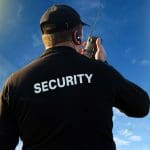Healthcare Security is Complex
Years ago, a good friend explained to me that healthcare security was complex, and heavily influenced by federal laws, state laws, accreditation standards, and a litany of other rules and regulations that can be difficult at times to navigate, especially for someone that is new to healthcare security. In my opinion, after working for over 24 years as a healthcare security expert, I could not agree more with that warning.
Working in hospital security has no equals in the security business. As a hospital security director, you are tasked with keeping the patients, staff, visitors, and others safe and secure, yet as a general practice you cannot lock things down to do so. Healthcare facilities are often open campuses and will often have dozens of exterior doors open at any given time during the normal business hours. The recent pandemic changed that to some extent, where hospitals reduced the number of entrances so that they could screen people coming in, but unfortunately many organizations have relaxed that practice, as they want a friendly and welcoming feel to them.
Workplace Violence in Healthcare
Workplace violence in healthcare has also become a very common issue, and there are many reasons why the incidents have increased year after year. However, suffice it to say in many cases it has gotten out of control and there have been serious incidents such as shootings and stabbings within the hospital, often in the Emergency department.
When conducting a hospital security assessment, I have often heard that their number one issue was that of workplace violence. Yet as we get deeper into the conversation, I find that the organization has not invested in being proactive with security.
One of the most often findings is that an organization will have their security officers conducting duties such as finding wheelchairs, moving the deceased patients to the morgue, clearing a backed-up toilet, delivering mail, and several other duties that have absolutely nothing to do with security. It is more like they treat security as the labor pool. Now to be fair, this is not the fault of administrators, as more often than not the person in charge of hospital security has not ensured that the admin people know just what it is that security is doing daily.
There is also the issue of a security manager trying to show more value to the administration by volunteering the security staff to do those tasks that are not aligned with security services. Numerous times I have heard those types of comments, and as such there have been many conversations where it determined that those intentions actually make things worse for security. Undoubtedly there are still security managers out there that feel that they need to offer their officers to other duties that no one else wants, and we can only hope that they come to their senses in due time.
Hospital Security Officer Responsibilities
The point here is that if your organization has found that their number one issue related to safety and security is that of workplace violence, then why would we delegate hospital security officers to the handling of the deceased patients? In the event of an emergency such as infant abduction, shooting, stabbing and so on, a hospital security officer that is transporting the remains of a deceased patient to the morgue cannot park that gurney in the hallway and respond to the potentially life threatening incident that is occurring. Therefore, depending on the size of the hospital security staff there may be times when there are no security officers available to respond to priority calls.
If you are a hospital administrator, ask yourself this, do you really know what duties your security officers are doing each day? Do you really want the very limited resources of the security staff to be out searching for wheelchairs or walking down the hall with a toilet plunger while there may be a workplace violence situation that is escalating in the E.R.? Have you considered the increased liability risks? Are you serious about providing a safe and secure hospital and reducing your security risks to the lowest possible levels? I understand that your job is that of high level management, and you have hired someone to manage your security, but maybe it is time to bring in an unbiased hospital security expert to conduct a deep dive into your risks and vulnerabilities and give you the information that your organization needs to ensure that your security is operating at the proper level for your risk exposure. It is also important that the security department is following all the best practices and industry standards for healthcare security.






